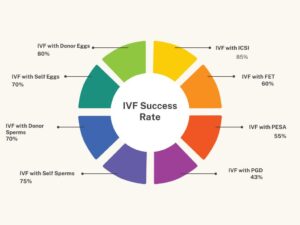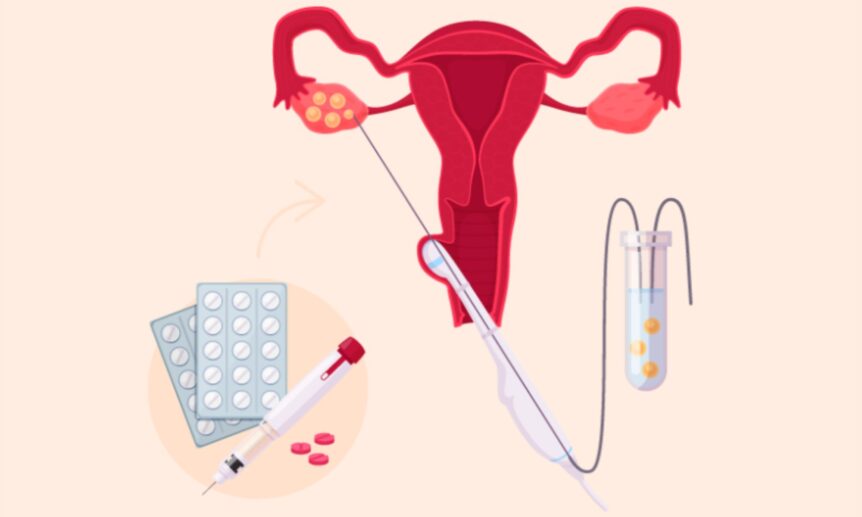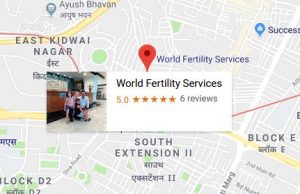In India, obtaining donor eggs for IVF is a carefully controlled procedure meant to guarantee everyone’s success, safety, and privacy. In India, donating eggs is both legal and common, and a lot of fertility clinics offer full-service assistance to make the procedure easier. In India, you can obtain donor eggs for IVF in the following ways:
Choosing a Fertility Clinic
To begin, pick a trustworthy fertility clinic that has knowledge of donor egg IVF research clinics with a high success rate, state-of-the-art infrastructure, and qualified personnel. Clinics in Bangalore, Chennai, Mumbai, Delhi, and other cities are renowned for their cutting-edge care.
Consultation and Assessment
The fertility specialist will review your medical history, fertility issues, and needs during your first consultation. They will talk about the procedure and decide whether using donor eggs is the best course of action for you.
When choosing an egg donor, the majority of fertility clinics employ approved egg donation organizations or maintain an internal database. Usually healthy women between the ages of 21 and 35, egg donors go through a thorough screening process that includes psychological, genetic, and physical evaluations. Based on factors like physical attributes, educational background, or medical history, you can choose a donor. According to legal requirements, donors in India typically maintain their anonymity.
Legal and Ethical Considerations
To safeguard the rights and privacy of both donors and recipients, Indian law permits egg donation under stringent guidelines. Clinics sign agreements to protect identity and make sure all parties follow ethical guidelines.
Egg Retrieval and Ovarian Stimulation
To generate several eggs, the donor is subjected to ovarian stimulation. After they reach maturity, the eggs are extracted using a minimally intrusive technique. In a lab, the recovered eggs are subsequently fertilized with sperm (either from a sperm donor or the recipient’s partner).
Embryo Transfer
The healthiest embryos or embryos are moved to the recipient’s uterus after the resultant embryos are examined for quality. Hormone therapy ensures a receptive uterine lining and prepares the recipient’s body for the transfer.
Follow-Up Care
To track the pregnancy’s development following the embryo transfer, routine follow-up consultations and testing are carried out.
Working with a reputable fertility clinic will help you get donor eggs for IVF in India without any problems. The nation is a desirable location for donor egg IVF due to its sophisticated medical infrastructure, skilled doctors, and reasonable costs.
What Is The Cost Of IVF With Egg Donor Cost In India? – IVF With Donor Egg Cost In India

IVF With Donor Egg Cost In India
IVF with an egg donor in India is one of the most economical options for cutting-edge fertility treatments globally, with typical costs ranging from ₹2,50,000 to ₹4,50,000 (about USD 3,000 to 6,000). This price covers many expenses, including embryo transfer, IVF treatments, egg retrieval, and donor remuneration. However, many variables could affect the ultimate cost:
Clinic Location
Because of their superior facilities and higher demand, fertility clinics in major cities like Delhi, Mumbai, Bangalore, and Chennai may charge significantly higher rates.
Donor Screening and Payment
Egg donors receive payment for their labor and time. The total cost is increased by a thorough medical and psychological examination of the donor.
Medications
A major portion of the expense is attributed to hormonal treatments for the recipient (to prepare the uterus) and the donor (to boost egg production).
Extra Procedures
The cost will increase if sophisticated methods such as frozen embryo transfer, PGT (preimplantation genetic testing), or ICSI (intracytoplasmic sperm injection) are needed.
Legal and Ethical Compliance
Clinics make sure that Indian laws governing egg donation are followed, particularly those on paperwork and moral behavior, which may involve extra administrative expenses.
Number of Cycles
Additional fees will apply for subsequent cycles if the first one is unsuccessful. To span several cycles, some clinics provide bundle deals.
India is a popular location for IVF using donated eggs because of its low costs and excellent medical care. To make an informed choice, patients are advised to speak with their selected reproductive clinic about comprehensive pricing breakdowns and inclusions.
What Are The IVF Success Rate In India? – “How To Get Donor Eggs For IVF In India?

IVF Success Rate In India
Depending on numerous variables, such as the patient’s age, general health, and the fertility clinic’s level of experience, the success rate of IVF (In Vitro Fertilization) in India normally varies between 40% and 60% per cycle. Clinics can have quite different success percentages; some of the best clinics have success rates of over 60% for specific patient groups.
The following are important variables affecting IVF success rates in India:
Age of the Woman: Success rates are greater for women under 35, usually between 40% and 50%. The success rate drops to roughly 30% to 40% for women between the ages of 35 and 40. The success rate for women over 40 may be 20% to 30% or lower, while results can be enhanced by employing egg donors or sophisticated procedures.
Cause of Infertility
The reason for infertility can affect the success of IVF. Male infertility reasons like poor sperm count or motility may have different success rates than female factors like endometriosis, PCOS, or blocked fallopian tubes.
Embryo Quality
A major factor in deciding the result of IVF is the quality of the embryos used. By choosing the highest-quality embryos for transfer, cutting-edge methods such as genetic screening of embryos (PGT) can increase success rates.
Clinic Expertise
Prominent IVF clinics in India with cutting-edge equipment and skilled medical staff typically have greater success rates. Better results are typically obtained by clinics that specialize in individualized treatment regimens and cutting-edge reproductive procedures.
Lifestyle and Health Factors
IVF success rates can be raised by maintaining a healthy weight, not smoking, abstaining from alcohol, and controlling stress.
All things considered, India is renowned for offering extremely effective IVF procedures at affordable costs, and many foreign patients come there to take advantage of its cutting-edge fertility services.
What Are The Egg Donation Rules In India? – IVF Treatment With Donor Eggs In India

Egg Donation Rules In India
The National Guidelines for Accreditation, Supervision & Regulation of ART Clinics and the Indian Council of Medical Research (ICMR) oversee egg donation in India. These rules guarantee moral behavior and the recipient’s and donor’s safety. The main guidelines for egg donation in India are listed below:
Donor Age
The donor must be in the age range of 21 to 35. The eggs are of the best quality for effective fertilization within this age range.
Consent
Before taking part in the donation procedure, the egg donor must give their informed consent. The medical processes, hazards, and the fact that the eggs will be utilized for IVF treatment often for a recipient who may not be biologically related—must be completely understood by her.
Payment
Although it is highly controlled, egg donors in India are permitted to get payment for their time and labor. The payment cannot be regarded as a commercial trade for the eggs themselves; rather, it is intended to recompense missed time and medical costs. Exorbitant payments or treating the donation like a business transaction are prohibited for donors.
Confidentiality
The recipient’s and egg donor’s identities are kept secret. The recipient’s parents are regarded as the kid’s legal parents, and the donor has no legal claim to the child conceived from her eggs.
Medical Screening
Before donating eggs, donors go through extensive medical and psychological testing. This involves a mental health evaluation to make sure they are mentally ready for the donation process, as well as tests for infectious diseases (including HIV, Hepatitis B, and C), and genetic problems.
Legal Rights
Donors of eggs give up all legal claims to the given eggs and any offspring that result from their use. The child’s legal parents are the intended parents.
These rules are in place to guarantee that egg donation in India is conducted ethically, safeguarding both donors and receivers while upholding a transparent legal framework for the procedure.
Table of Contents



 WhatsApp us
WhatsApp us